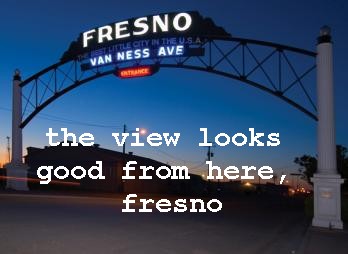as we continue to post undercurrent articles, this is a special one. you see, it was for the june issue, but due to a printing error, it didn't actually show up. so, here's an exclusive for you:
Adam: Hey, I'm gonna start it off with with reference to the University of Minnesota study on American attitudes towards atheists that came up with some intriguing numbers a few years back. I doubt they've changed much. One of the questions (with responses) was:
I would disapprove if my child wanted to marry a member of this group....
Atheist: 47.6%
Muslim: 33.5%
African-American 27.2%
Asian-Americans: 18.5%
Hispanics: 18.5%
Jews: 11.8%
Conservative Christians: 6.9%
Whites: 2.3%
And so now I get to ask Ed a loaded question. Do you think these numbers stem from a campaign by those who would define themselves as staunch opponents of atheism, the idea that atheists truly are just bad people, a corresponding percentage of in-groups who just don't approve of intermingling with out-groups, straight up bigotry, or something entirely different?
Ed: No, I don't think there is an organized campaign against atheism, straight up bigotry, or staunch opponents. I think there may be a lot about in groups/out groups that factors in. I mean, if you look at the United States, the majority of people have some sort of religious belief. With that in mind, I'm not too surprised that people distrust, or wouldn't want their child to marry, someone outside of their group, whatever the group is. Because really, if you shifted that question to another belief group besides athiest I'm pretty sure it would still skew the same. For example, we have had only one Catholic president and none that have claimed to be anything other than Christian. People like what they know, and are hesitant and fearful of what they don't. Why are you surprised by this?
Adam: But the question wasn’t leading with atheists. It just asked which group the participants disapprove of. I’m not sure how you could shift the question. And yes, I am surprised. To put it in a larger context, I’m surprised that atheists topped the list considering how steeped in anti-Islam our nation has seemed to be. I wouldn’t have even thought to have it register on the radar, let alone be number one. Then again, the number of people who conflate the theory of evolution with some sort of atheist movement is a factor that I’m sure plays into this as well, especially considering the recent push to teach creationism in science courses as a direct alternative. I think the larger issue at hand is the idea of organization. I’d be willing to bet that there is a large percentage of the religious world that conceptualizes atheism within their own framing; as an organized religion essentially.
Ed: Well, one thing that we don't know is how the questions were asked, along with how the answers were presented. In looking at the answers, half seem to be about types of belief, and the other half are about cultures. That alone may influence where people come out. What we also don't know about that particular study is how big of a study it was, where it was conducted, and if it really was a representative sample size for us to make applications to our society at large. I mean, since it was done by U of Minnesota, maybe they encountered a large group of people that are more accepting of Muslims due to the large Muslim population in that area. And as for people conceptualizing atheism in their own framing, sure. But, again, people do that for every group. People have an idea of who they think Mormons are, Muslims are, Buddhists are, and yes, atheists. Are atheists some unified or organized group? Well, no, not really. But then again, many religions also aren't as cohesive as their opponents portray them. We also have to think of the historical context of atheist in American society. I mean, for many Americans atheism goes hand in hand with communism, something every red blood American despises. And, mix in some vocal, somewhat controversial atheist figures like Madalyn Murray O’Hair and you there you go, a distrust for a group of people.
Adam: It was a random sample of 2000 people. Take that how you will reader because we’re out of column inches. And as far as outliers, we should be a better educated society when it comes to differentiating. Glenn Beck is a douchebag (can I say that here? ‘Cause I’m gonna) but that doesn’t make me think that all journalists are douchebags. Technically, this column makes me a journalist, and if I took the generalization to it’s logical conclusion, then I’d be a douchebag. I don’t want that! Anyway, I just wanted to see if I could get that word into the column three times. We’ve skimmed over a lot of serious things here. Now dear reader, it’s your turn to switch on the brain and consider these things rationally, humanly, and of course, skeptically.
Sunday, July 11, 2010
Subscribe to:
Post Comments (Atom)

No comments:
Post a Comment